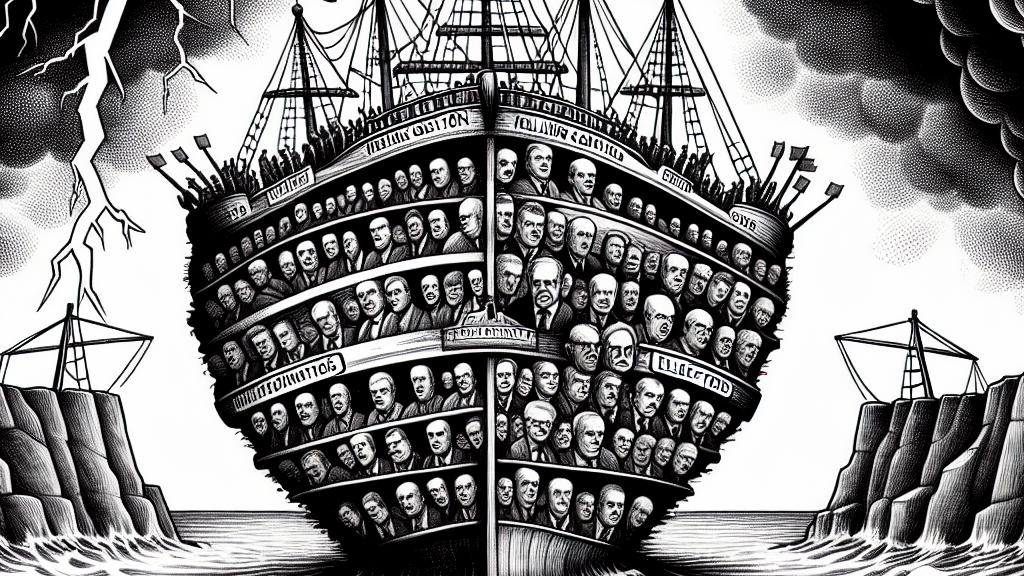Germany's Government Faces Potential Breakdown Amid Coalition Disputes
Overview
- Germany's ruling coalition is grappling with severe divisions over essential economic policies.
- Intensified negotiations expose significant rifts among the SPD, Greens, and FDP as they approach critical decisions for 2025.
- Growing concerns about the coalition's stability raise fears of an imminent government collapse.

Deepening Coalition Tensions
In the heart of Germany, the ruling coalition—made up of Chancellor Olaf Scholz’s Social Democratic Party (SPD), the Greens, and the Free Democratic Party (FDP)—is facing an existential crisis. This coalition, which was once a strong and united front, has begun to unravel under the weight of severe disagreements surrounding economic strategies. Notably, political analyst Carsten Brzeski highlighted that 'the risk of the German government collapsing has never been higher,' indicating a situation that is both dire and critical. Such tensions have reached a breaking point, where coalition members seem more inclined to prepare for upcoming elections against each other rather than collaborating effectively. For instance, when Chancellor Scholz convened a meeting with business leaders, he neglected to include his coalition partners, sparking outrage and suggesting that the SPD might be prioritizing its interests over the collective goals of the coalition.
The Budget Crisis and Its Ramifications
At the center of this political storm is the contentious budget proposal for 2025, which has become a battleground for competing agendas. A recent ruling by Germany’s top court has exacerbated the situation, declaring that the government could not reallocate 60 billion euros designated for pandemic relief to other initiatives. This shocking ruling left a staggering 17 billion-euro gap in the upcoming budget—a daunting challenge for a coalition whose members have notoriously different priorities. The ensuing discussions have revealed a lack of harmony; for example, Finance Minister Christian Lindner’s budget proposals directly clash with the fundamental policies of both the SPD and the Greens, leading to public disagreements that undermine trust among the coalition partners. Moreover, the urgency of the situation means decisions must be reached swiftly, which is proving difficult given the profound ideological divides that currently exist.
Possible Scenarios and Future Implications
As the coalition grapples with these challenges, several possible outcomes may shape the future of German politics. Should the FDP decide to exit the coalition—either by walking away or by being expelled due to rising tensions—the SPD may be compelled to govern alone, leaning on the Greens as a minority partner. Such a scenario could create a political quagmire, hampering Germany's ability to address crucial domestic and international issues effectively. The stakes are spectacularly high, as instability within this coalition could hinder critical support for Ukraine during its ongoing struggles. Essentially, what was once viewed as a progressive alliance is on the brink of collapse, with its future hanging precariously in the balance. As the situation unfolds, it is clear that the ramifications of these coalition disputes will resonate far beyond Germany’s borders, affecting European stability as a whole.

Loading...